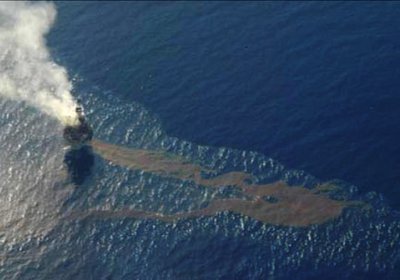The ongoing disaster in the Gulf of Mexico caused by the April 20 explosion at the Deepwater Horizon oil rig has exposed the obscene behaviour of the world’s fourth-largest corporation, British Petroleum (BP).
Evidence has come from many sources revealing BP was aware of safety concerns, but did nothing about them.
Environment
Prime Minister Julia Gillard is enjoying a honeymoon in the polls since taking Kevin Rudd’s place. A July 2 Reuters Trend poll confirmed a series of polls since Gillard became PM on June 24, giving Labor the lead over the right-wing Coalition.
The June 26 Sydney Morning Herald said a Herald/Nielson poll found Greens support since Gillard took over had fallen from 15% to 8%.
But another crucial poll indicated the true nature of Gillard’s rise to power. As soon as she was installed as prime minister, the share price of the large mining corporations rose.
Australia’s leading conservation groups said in a joint statement on June 21 that concern about lack of action to provide safeguards against large-scale oil spills in Australia will be a high-profile issue in the next federal election.
Thirty-two environment groups — including the Australian Conservation Foundation, WWF Australia and Pew Environment Group — have called on all political parties to commit to a network of large marine sanctuaries this coming election to provide safeguards for Australia’s unique marine life.
Newly installed Prime Minister Julia Gillard has offered a truce and fresh negotiations with the mining industry over the government's proposed Resources Super Profits Tax (RSPT).
Watching the industry's advertising campaign, you'd think the RSPT spelt the end of civilisation as we know it. According to one BHP Billiton ad, the RSPT will mean “fewer projects, jobs and opportunities for our future generations”. The ad's title, above an all-Australian image of young blokes playing footy, reads: “Australia loves to compete, but the Super Tax could take us out of the game.”
NASA climate scientist James Hansen has called them “factories of death”. British columnist George Monbiot has said “everything now hinges” on stopping them. US climate writer Bill McKibben is prepared to be arrested to have them shut down.
But Australian state governments don’t get it — they are still enchanted by coal-fired power stations.
Climate campaigners say Australia should urgently replace existing coal-fired power plants with renewable energy, but 12 new “death factories” are slated to be built in Australia over the next few years.
Sand mining on Stradbroke Island, offshore from Brisbane, will be phased out by 2027, under a new plan announced by the Queensland state government on June 20. Most of the island will become national park and development of ecotourism will be the main industry.
The Canadian province of Alberta is well known as a climate-destroying behemoth. The tar sands developments in its north are the single largest source of greenhouse gas emissions on the planet.
Less well known are the ambitions of its neighbouring province, British Columbia. It shares similar fossil fuel reserves and ambitions as Alberta. Vast coal and natural gas reserves are being opened at breakneck speed.
Construction is underway or planned for accompanying road, rail, pipeline and supertanker transport routes.
In July, Socialist Alliance election candidates will be taking a trip to the Northern Territory to personally witness conditions under the federal government's intervention into Aboriginal communities.
SA youth candidates — and Resistance members — Jess Moore, Zane Alcorn and Ewan Saunders will join Indigenous activists, students, community groups and campaigners from across the country in Alice Springs for an important gathering of intervention-affected Aboriginal communities.
The world’s worst ever oil spill is also the biggest methane leak in human history, US government scientists have said.
The US Geological Survey’s “flow team” has estimated between 4.5 billion to 9 billion cubic feet of natural gas have escaped from BP’s Deepwater Horizon rig since it exploded in April, Associated Press said on June 19.
John Kessler, an oceanographer at the Texas A&M University, told AP the leak was “the most vigorous methane eruption in modern human history”. Scientists think methane makes up 40% to 70% of what is spilling from the damaged BP rig.
As climate change compels us to reduce carbon emissions, urban gardens that provide locally produced food are becoming an increasingly important model. The African Food Project is an urban, organic farm that grows traditional African vegetables for the African community around the outer western suburb of Blacktown.
On June 25, federal trade minister Simon Crean signed a deal to export up to 20 million tonnes of dried brown coal to Vietnam. The deal was signed with ironically-named Victorian company Environmental Clean Technologies (ECT). Fifty people protested outside the venue in Southbank where the deal was signed, despite the rain and only a few hours notice of the event.
Organisers are expecting about 400 people to descend on Adelaide for the Students of Sustainability (SoS) conference over July 4 – 8.
The conference is held annually for students and activists involved in environment and social justice movements. Over the four days, workshops will be held on topics as diverse as climate change, guerrilla gardening, Indigenous rights, campaigning for renewable energy on campus and many more.
SoS gives participants the confidence, practical skills and motivation needed to campaign for a cleaner and healthier Earth.
- Previous page
- Page 287
- Next page







